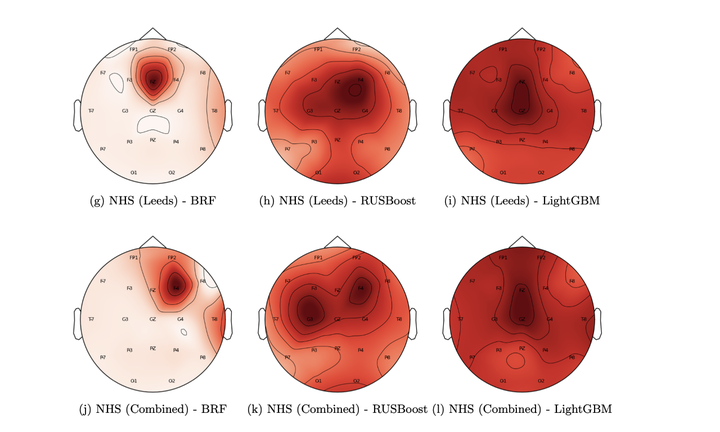 Topoplots of average feature importance, acroding to electrode locations, across features and models on different patient groups.
Topoplots of average feature importance, acroding to electrode locations, across features and models on different patient groups.
Abstract
This talk is an overview of how new applications of ML could soon provide physiologists with better quantitative tools to improve workflow and diagnostic accuracy. Prior knowledge of epilepsy, neuroscience, and ML is not assumed - talk aims to be accessible to a broad range of backgrounds.
Static rule-based algorithms to assist medical diagnosis and treatment monitoring have been used in practice for decades (e.g. heart rate monitoring). Research into detecting epileptic seizures from the electrical activity of the brain , with machine learning, has been an active area of research for over 20 years. Given recent advancements in “big data”, portable bio-sensing technologies, and other computer hardware/software, the feasibility of successfully implementing such algorithms into practice is improving.